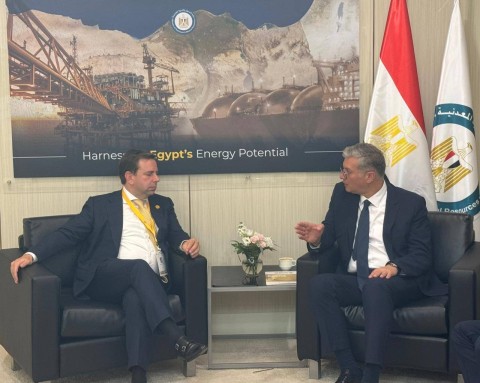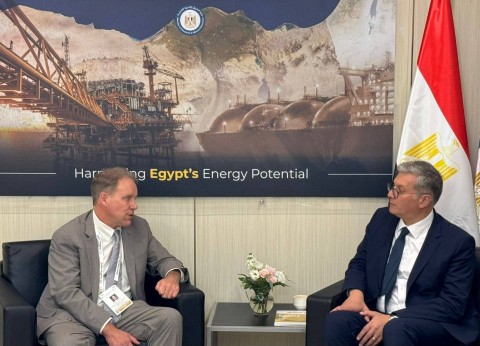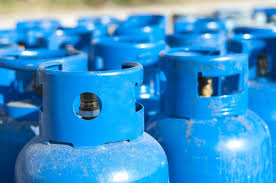By Sarah Samir
With the fluctuations of global oil prices; the kingdom of Bahrain is trying to make its way out of an economic drop. Although the Bahraini kingdom is working on diversifying its economy from oil and gas since 1990, the kingdom’s deficit is still affected by the changes in the global oil and gas markets. Hence, with the stumbling oil prices, the kingdom had to take a number of measures including the increase of its fuel prices, in 2016.
Bahrain is one of the two Gulf Cooperation Council (GCC) countries that are not members of the Organization of Petroleum Exporting Countries (OPEC) due to its production rates.
The country had discovered its first oil in 1932 in Jaba Al Dukhan, and established the first refinery on the gulf region on 1935, which helped in the modernization of the Kingdom of Bahrain. Back then, the drilling process in Jabal Al Dukhan showed the presence of “blue shale at 1,250 feet and the crew smelled oil, heralding the start of a new economic era for Bahrain,” Tatweer Petroleum’s article on Bahrain Oil Field explained. Accordingly, if Bahrain adopted the most recent technologies, it could produce shale oil and gas through its unconventional field and can further explore for more unconventional resources.
Market Overview
Bahrain’s economy is based on the hydrocarbon’s industry and banking industry, according to an Oxford article, entitled Bahrain Fiscal Policy: Spending Increases and Lower Oil Provides Putting Pressure on Government Finances. However, with the low global oil prices, Bahrain is facing challenges that affect the kingdom’s economy.
Oil production recorded a decrease in 2017, from a year earlier, as production reached around 41,000 barrel per day (b/d), which is close to the 2012 production around 41,000 b/d. The Kingdom’s oil production was increasing gradually to record around 48,000 b/d in 2014, then around 50,000 b/d in 2016, before the decline in production in 2017. However, the declining production is yet representing more than the average oil production of the kingdom between 1994 and 2017, which recorded 39,240 b/d, according to Trading Economics data.
Furthermore, Bahraini natural gas reserves decreased from 5.2 trillion cubic feet (tcf) in 1997 to 3.3tcf in 2016, according to Konoema World Data Atlas, entitled Bahrain Gas: Proved Reserves of Natural Gas. Another report by Konoema, Bahrain Oil: Crude Oil Proved Reserves, showed that crude oil reserves were estimated at 0.12 billion barrel (bb) in 2015.
Economic Challenges
The state does not only suffer low crude oil reserves, but most of the kingdom’s “oil revenue comes from a Bahraini share of an offshore field controlled by Saudi Arabia,” according to Middle East Eye’s Analysis: Bahrain’s Economic Challenges. Therefore, the kingdom should develop its other fields and discover new oil and gas sources before the offshore field reaches its maturity.
Adding to that, the Kingdom of Bahrain does not possess the capital required for managing and developing the hydrocarbon industries because there is a need for foreign investments to maintain such industries, according to Middle East Eye’s country report, Analysis: Bahrain’s economic challenges. Therefore, the kingdom has to “import natural gas,” the report added, which affects the country’s current deficit.
The glut in global oil prices caused a number of problems to the Kingdom of Bahrain, especially with “ pressures to keep government spending increasing, [which] have been intensifying since the Arab uprisings,” Middle East Eye’s Analysis further stated.
“If oil prices continue at this level, it will become even more challenging for us,” Bahrain’s Oil Minister Mohamed, Khalifa Al-Khalifa, told RFI in September 2016. Accordingly, the globally declining oil prices “led to the overall fiscal deficit and public debt in 2016 near 18% and 82% of gross domestic product (GDP), respectively,” Padamja Khandelwal, Leader of International Monetary Fund (IMF) mission to Bahrain, stated at the end of the mission’s visit to Manama in March 2017. Hence, the kingdom’s “external current account deficit is estimated at 4.7% of GDP,” Khandelwal added.
Due to the expected increase in oil prices in 2017, the Bahraini current account deficit is expected to narrow, according to Coface’s Economic Studies and Country Risks of Bahrain.
In 2017, Bahrain is expected to still have inflation due to oil prices. Although the Kingdom of Bahrain increased fuel prices in 2016, the kingdom needs sell its oil for $120 per barrel of oil, in order to overcome the inflation, as stated by international credit agency Fitch’s ratings published in 2015. However, oil Brent price was standing at $48.42 on July 17.
Bahrain increased prices in 2016 “for the first time in 33 years [as] the price of regular gasoline rose from $0.2 per liter to $0.33 while the price of super gasoline jumped from $0.27 per liter to $0.42,” according to Leah Schulz’ article, entitled Bahrain Economy Struggles with Oil Price.
Despite the 2016 measures, Bahrain’s budget deficit stood at 18%, while public debt stood at 82 % of gross domestic product in the same year. Hence, “a sizable fiscal adjustment is urgently needed to restore fiscal sustainability, reduce vulnerabilities, and boost investor and consumer confidence,” the IMF stated in April 2017. The statement added that the measures might include “valued-added taxation and further rationalizing of spending on subsidies and social transfers,” Bloomberg reported.
Yet, the kingdom’s deficit is seen to drop in 2017 to 12.6% of GDP due to “the higher expected oil prices,” Khandelwal explained.
The Bahraini economy is also affected by political and social instability which is curbing the kingdom’s economic growth “as political risk has disrupted some economic activity while also spurring the government to increase spending,” Middle East Eye’s Analaysis: Bahrain’s Economic Challenges Explained. With hydrocarbon industry acting as the main contributor in Bahrain’s GDP, “real GDP growth has declined from an average of 5% over the last ten years to 2.9% in 2015 and is expected to further decelerate in 2016 (1.0%),” RaboResearch’s country report, entitled Bahrain: Structural Adjustments are Necessary to Mitigate the Impact of Low Oil Prices.
Accordingly, Fitch announced in its 2015 ratings that “Bahrain’s rating [changed] from stable to negative, citing falling oil prices and a failure to address the political situation,” according to Schulz. Therefore, if Bahrain’s oil challenges remained, in light of the already existing instability, riots might break out, and eventually, the country’s deficit could further grow.
Government Program
In 2016, the Kingdom of Bahrain announced several decisions to face the tumbling economy. The decisions include “fiscal reforms to widen its fiscal base, including the introduction of a GCC wide value added tax (VAT) within a few years, and the reduction and redistributing of government subsidies, such as further cutting of energy subsidies; streamlining government expenditure; and a series of economic reforms and infrastructure projects to further diversify and strengthen its economy,” Rabobank’s report stated. Although the economic measures might add to the social and political unrest and cause riots, they are necessary to decrease the kingdom’s current public deficit.
The Bahraini government further adopted a “cost-cutting program [which] entailed the removal of the meat subsidy in 2015 and raising petrol prices by 60% in January 2016 (which is likely to create savings worth $148.4 million); the gradual phasing-in of price increases for electricity, water, diesel and kerosene by 2019; and an increase and unification of natural gas prices for industrial users at $2.5 per million BTUs beginning April 2015,” according to the World Bank’s Bahrain’s Economic Outlook, published in July 2016.
Although the oil prices were tumbling affecting the economy of the Kingdom of Bahrain, the overall economy has a 3% growth as “non-oil sectors that grew by 3.7% in 2016, contributed to Bahrain’s overall economic growth of 3%,” stated Asharq Al Awsat’s article, Bahrain Expects the non oil Sector to Grow by 3% in 2017.
In the second quarter of 2016, Bahrain’s economic growth was “led by non-oil sector whereas the oil sector actually experienced a small 1.7% YoY contraction,” according to Bahrain EDB’s report, Bahrain Economic Quarterly| September 2016.
The report further explained that “the pace of growth in the non-oil economy accelerated markedly from 2.7% YoY in the Q1 to 3.6% in Q2.” It added that “the fastest growing sectors in Q2 were Social and Personal Services, Construction, and Financial Services.”
In order to recover from political and social unrest, the kingdom’s government should “reduce social expenditure and increase (non-oil) revenues to ensure macro-economic stability,” according to Rabobank’s country report, Bahrain: Structural Adjustments are Necessary to Mitigate the Impact of Low Oil Prices.
Furthermore, Bahraini Parliament members proposed a law act in 2016 “to fully privatize several state-owned businesses to help curb the deficit,” according to the World Bank Outlook.
The country is taking every possible measure to face the challenges of low oil prices. Yet, the government’s diversification plans are still ongoing to decrease the country’s dependence on oil and gas industries. Bahrain still needs to further diversify its industries and not to have most of its revenues from the hydrocarbon industry and the banking sector. By flourishing its economy, and decreasing its deficit, the country can secure more luxurious social standards to citizens which might ease the political turmoil. Eventually, the gulf country would have outstanding revenue affected by a stable social and political environment and a diversified economy, which would pave the way for Bahrain to become a world leading economic country in future.








